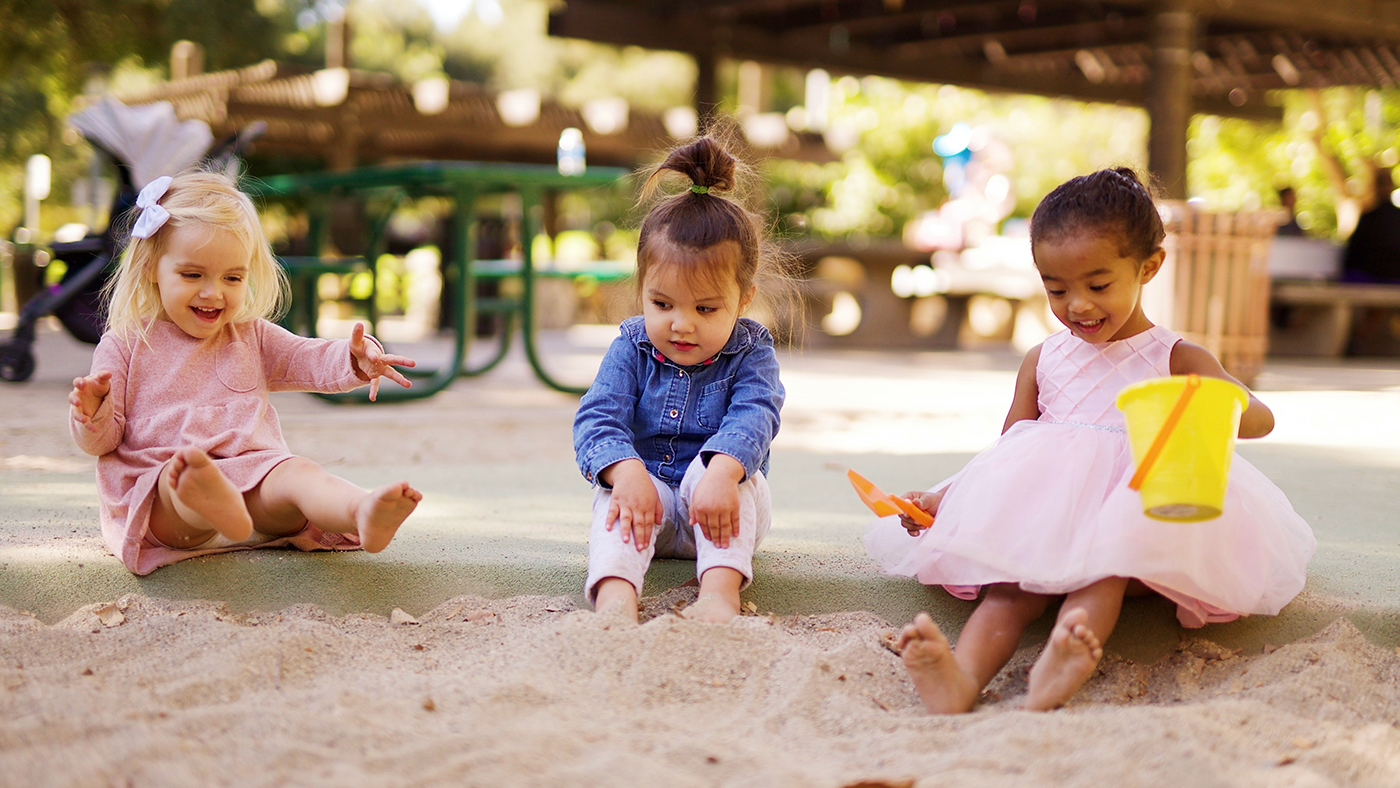Begins to look for and play with other children who like doing the same things as them

Your child has been interested in watching other children play for a while and might have been playing alongside children doing similar things. They will now look for other children who are doing things that they enjoy and will play with them. They might play with different children at different times, choosing based on what other children are doing rather than seeking out a particular child.
Developing friendships
As parents we are often concerned about if our children have friends, however, establishing and maintaining friendships involves sophisticated social skills that young children are still developing. Your child’s first relationships with other children might not be a friendship in the way we as adults would view friendship. They might choose children to play with according to a shared interest or goal at a particular time rather than always seeking out the same child or children.
Your child’s relationships with you and other adults who care for them are important they help them to understand relationships and will support them as they develop friendships with other children. [1] Your child might enjoy spending time playing alone and exploring their own ideas as well as spending time with other children. Sometimes playing on their own can help them to develop their ideas and might lead to ideas and interests that they can share with others.
Children’s friendships often develop from sharing interests or play ideas, and through these relationships, your child will learn more about how to consider other people’s ideas. Your child might fall out with other children as they learn that other people have different ideas. Whilst, they might need adult support sometimes also think about when they can resolve disagreements themselves, their relationships with other children might support them to develop the skills needed to negotiate and compromise.[1]
Skills that support children to develop friendships
Your child has been developing the skills they need to establish and maintain friendships since they were born. They will have learnt through their interactions with you and other people who care for them about the way in which people respond to each other. They will have watched those around them talking to each other and see how people interact, they might have copied some of these interactions in their play or when speaking to you or their siblings.
Your child has started to develop an understanding that other people have different thoughts and feelings and when you support them with their emotions, they will be learning how they can support others.
Your child’s cognitive and language skills will help them to think about and share their ideas about play with other children.[2]
Your child's ability to regulate and to resolve conflicts will support them as they develop relationships with other children.[2] You can support them with this through coregulation, that is by helping them to recognise their emotions and supporting them to calm. It is thought that pretend play can also support your child to develop self-regulation so ensuring they have time to play and explore their ideas is important too.
What next?
As your child’s understanding of other people develops, they will begin to find different ways to include other children in their play. They will as they experience playing with other children more begin to talk to others and agree approaches, they might need some adult support to do this as their skills develop.
References
[1] Teszenyi, E. (2018). Friendships in children’s communities. In Sykes, G. & Teszenyi, E. (Eds.) Young Children and their Communities. Pp 29-41. London: Routledge.
[2] Cillessen, A.H.N. & Bellmore, A.D. (2011). Social skills and social competence in interactions with peers. In Smith, P.K. & Hart, C.H. (Eds.) The Wiley-Blackwell Handbook of Childhood Social Development. pp. 449-471. Oxford: Wiley-Blackwell.